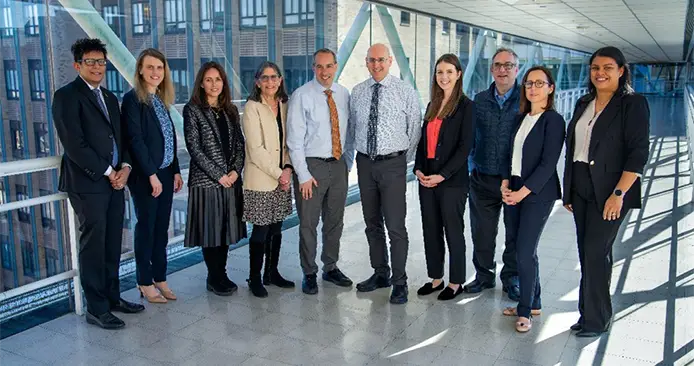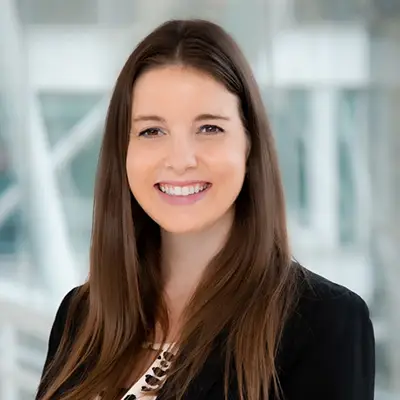Heart failure is the number one cause of death in the U.S., affecting as many as 8 million people. One of five people above the age of 40 will have heart failure in their lifetime, many with significant symptoms that reduce their quality of life. Half of heart failure patients will not survive five years.
These grim statistics undergird the establishment of NewYork-Presbyterian’s new Heart Failure Research Institute. “The burden of heart failure on society is enormous,” says Nir Uriel, MD, Director of the Heart Failure, Heart Transplant, and Mechanical Circulatory Support Programs at NewYork-Presbyterian and the institute’s founder and executive director.
NewYork-Presbyterian has a long history in making advancements in the field of heart failure, making it an ideal location for this institute. “From the first heart transplant, which happened here in 1977, to the first pediatric heart transplant to the first device therapy in heart failure, there is so much history here and that is the reason the future of heart failure research is here.”
The vision for the institute is to advance the understanding, prevention and treatment of heart failure to improve quality of life for people with heart failure. “We plan to perform clinical and translational research to test diagnostic tools, conduct clinical trials, and develop innovative therapeutic solutions while also training the next generation of doctors,” says Dr. Uriel.

From left to right: Parag Goyal, Nancy Kelley, Melana Yuzefpolskaya, Evelyn Horn, Gabriel Sayer, Nir Uriel, Erica Lancet, Mathew Maurer, Ashley Beecy, Madeline Checo-Martinez
A team of experts in the field from NewYork-Presbyterian is heading the Heart Failure Research Institute. In addition to Dr. Uriel, the leadership team includes:
- Gabriel Sayer, MD, associate director of Heart Failure, Heart Transplant, and Mechanical Circulatory Support Programs and the Heart Failure Research Institute’s associate executive director
- Erica Lancet, MPA, director, Strategy and Operations, Heart Failure Research Institute
Members of the Steering Committee
- Parag Goyal, MD, director of the HFpEF and Cardiac Amyloidosis Program at NewYork-Presbyterian and Weill Cornell Medicine
- Evelyn Horn, MD, director of the Perkin Heart Failure Center at NewYork-Presbyterian and Weill Cornell Medicine
- Mathew Maurer, MD, director of the Cardiac of the Amyloidosis Program, NewYork-Presbyterian and Columbia
- Melana Yuzefpolskaya, MD, associate director of the Mechanical Circulatory Support Program at NewYork-Presbyterian and Columbia
Additional MD Collaborators
- Ashley Beecy, MD ,medical director of Artificial Intelligence Operations at NewYork-Presbyterian and Weill Cornell Medicine
- Martin Leon, MD, chief innovation officer and the director of the Cardiovascular Data Science Center for the Division of Cardiology, NewYork-Presbyterian and Columbia
“Part of our mission as heart failure physicians is not only to take care of our patients, but to try to find better ways of taking care of the heart failure population as a whole,” adds Dr. Sayer. “We want to find new technologies, techniques, and approaches that we can apply to our patients that could then be translated into larger populations.”
Research-Funded Opportunities
One of the institute’s goals is to advance research projects that have been initiated by Weill Cornell Medicine and Columbia faculty in conjunction with research scholars or trainees. The Heart Failure Research Institute provides financial support and other resources to help complete the research.
The institute will administer three annual grants: the Snyder & Granader Family Cardiomyopathy Grant, the Hariharan Heart Failure Research Program Grant, and the Peter and Margaret Sullivan Cardiomyopathy & Advanced Heart Failure Grant. “Anyone who is employed by NewYork-Presbyterian, Weill Cornell Medicine or Columbia can apply for one of those grants” says Dr. Sayer.
The institute is also dedicated to supporting rising researchers. The scholars program will select up to two full-time scholars each academic year who will engage in research overseen by a faculty mentor. They will spend a year or longer on their research, partnering closely with experts at NewYork-Presbyterian, Columbia, and Weill Cornell Medicine. Applications for the scholars program are open to anyone who has completed medical school and demonstrates a commitment to pursuing heart failure research. “We expect a lot of people at various levels of training to apply,” says Dr. Sayer.
The institute’s first scholar, Boaz Elad, MD, is starting in August of 2024. “It can be difficult to get an NIH-funded grant to do your research or even have access to experts, especially as a junior researcher,” says Erica Lancet, the institute’s Director of Strategy and Operations. “The institute provides a funded way to do significant research.”
Furthering Education
In addition to research opportunities, the institute also directs a robust education program. Weekly meetings are made available to professionals outside of NewYork-Presbyterian, says Lancet. Larger sessions designed to go deeper into specific topics are planned twice a year and can be attended in person or accessed online.
The Heart Failure Research Institute at NewYork-Presbyterian is going to make a difference in heart failure research and treatment for patients across the world.
— Dr. Nir Uriel
“Although cardiologists take care of heart failure patients, a lot of general cardiologists or primary care physicians see heart failure patients in their clinic,” Lancet says. “By having these weekly educational sessions, we're not only educating our own faculty, but we are also educating the national and international communities. We have had people log into our meetings from location such as Ohio, Italy, Jamaica.”
The institute is also hiring biostatisticians. “We envision that this role will become a resource for all of the research going on within the heart failure group,” says Sayer. “We anticipate that having biostatisticians will improve the quality of the work that we're able to do.”
Culmination of a Vision
Creating an infrastructure to facilitate research in the field was a long-standing goal for Dr. Uriel. “In 2022 and 2023, we began reaching out to donors that we thought would be aligned in our vision and dream to build and support our institution,” he says.
The organization was formally launched in the beginning of 2024. The institute put out a request for applications and received dozens of proposals. The winners of the first round of grants were:
- Dr. Afsana Rahman, recipient of the Snyder & Granader Family Cardiomyopathy Grant to assess the feasibility, efficacy and safety of letermovir for prevention of Cytomegalovirus disease in moderate to high risk serostatus heart transplant recipients immediately following transplant.
- Dr. Andrea Fernandez Valledor, recipient of the Peter and Margaret Sullivan Cardiomyopathy & Advanced Heart Failure Grant to assess the correlation between non-invasive biomarkers and tissue-based gene expression profiling using the Molecular Microscope (MMDx) and to evaluate the clinical utility of complementary molecular analysis in the decision-making process about treatment for different heart transplant rejection profiles
- Dr. Jaya Batra, recipient of the Hariharan Heart Failure Research Program Grant to characterize changes in microvascular, renal, and hepatic function over time in individuals with severe tricuspid regurgitation, determine whether changes in microvascular, renal, and hepatic function are associated with changes in quality-of-life measures, including heart failure hospitalizations and exercise capacity and determine whether microvascular, renal, and hepatic function improve following percutaneous valvular intervention.
“I see a clear path to succeed here because there is a culture, a vision, and a belief that it should and can be done,” says Dr. Uriel. “The Heart Failure Research Institute at NewYork-Presbyterian, Weill Cornell and Columbia is going to make a difference in heart failure research and treatment for patients across the world.”






